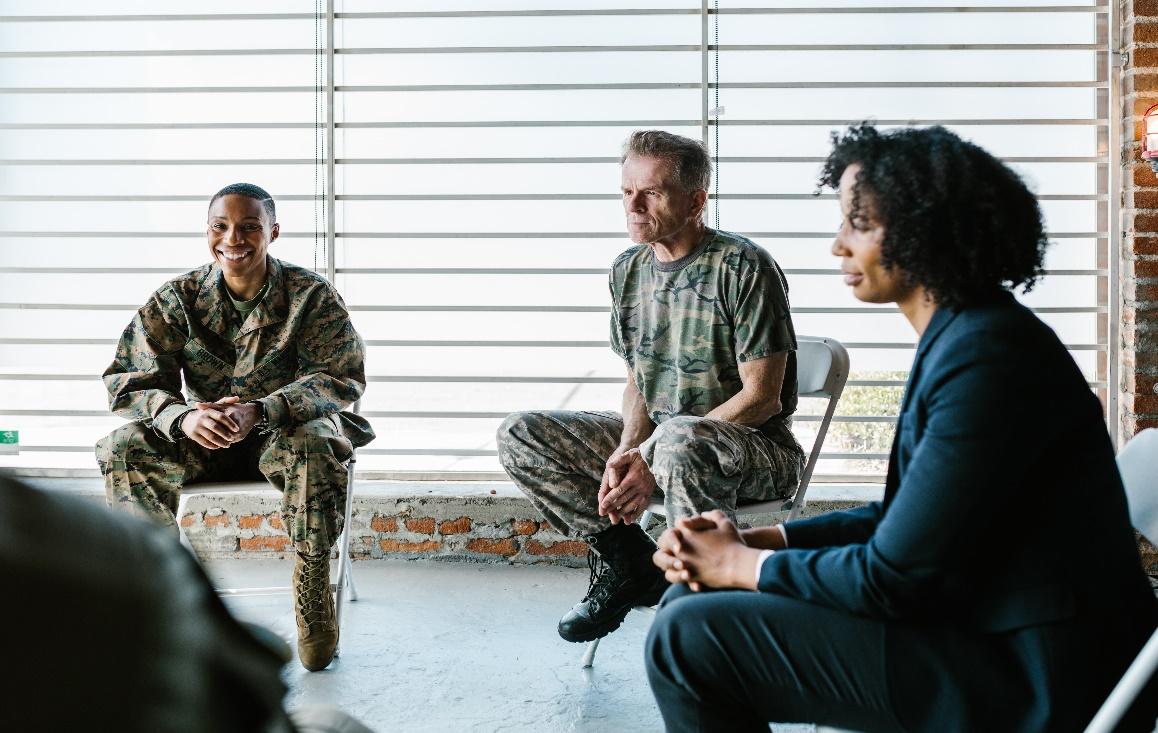Serving your nation is a privilege for all patriots, but it’s even more so if you’re in the military. Most wartime veterans desire to have happy lives after their service. The unfortunate truth about war is that it has consequences. Veterans of war may struggle with their physical and emotional health, and they may be affected by particular medical ailments. Fortunately, there are ways war veterans can stay healthy and improve their quality of life.
- Stay Active
Numerous studies demonstrate that engaging in regular physical activity is among the best strategies to maintain happiness and health. Regular exercisers report feeling more energized and have a lower risk of contracting several ailments. Veterans should engage in regular exercise or any other physical activity they prefer after their service.
The golden rule of leading a healthy life is to have a clear mind and a healthy body. Physical activity can benefit you in both areas. Walking, cycling, running, jogging, or swimming can keep your body active for a very long period. Additionally, they aid in the growth of stronger muscles, bones, immune systems, and metabolic rates. If you prefer working out in the gym, you might also think about doing that.
- Regular Medical Checkups
Military service members receive a variety of benefits as payment for their efforts. Numerous perks are offered, including lodging, regular medical exams, excellent pay grades, and many others. However, they may lack a reliable income once they have completed their military service. This may occasionally cause them to neglect their health, making them susceptible to certain diseases.
War veterans who were frequently exposed to asbestos while serving are more likely to acquire mesothelioma. Therefore, in the case have been asbestos exposure, routine checkups are essential to detect mesothelioma at an early stage. To get the best treatment and benefits for your illness, visit the Mesothelioma Veterans Center. These medical facilities are fully outfitted with cutting-edge equipment and qualified physicians who can take care of retired service members.
- Make Healthy Nutritional Choices
Living a healthy lifestyle begins with good eating. You must realize that every eating decision you make has an immediate and lasting impact on your general health. Veterans with extensive combat experience understand the value of a diet high in nutrients. However, maintaining a balanced diet and making sure you eat regularly after retirement becomes challenging.
However, if you want to live a long and fulfilling life as a combat veteran, always make sure you choose the proper diet. Nowadays, a lot of food corporations actively promote less healthy meal options, such as fast food. Such meals have the potential to cause obesity, heart disease, and other conditions.
Since vegetables and meat provide almost all of the macronutrients you need to feel full, you should consume them regularly. You can opt to treat yourself once in a while but stay away from fast food, booze, and sweets.
- Managing Financial Strain
Dealing with financial stress can be challenging, particularly as you get older. Most veterans experience financial difficulty after retirement because they struggle to support their family’s needs. In the worst circumstances, individuals may even succumb to anxieties and addictions that are harmful to their health. Therefore, you, as a retired combat veteran, must manage your financial stress. You must analyze your financial situation and come up with a plan of action to address it in order to achieve this. You can also ask for assistance from financial professionals to develop your financial literacy so that you can build a bright future for your dear ones.
- Managing PTSD
Many veterans find dealing with PTSD symptoms after leaving the military difficult. You might find it challenging to acclimate to life after the military. Or you might feel tense all the time, quiet and withdrawn from the world, alienated, and on the verge of panicking. It’s crucial to realize that you’re not alone, that there are many methods to deal with recurrent nightmares and flashes, with emotions of melancholy, anxiety, or guilt, and that you may reclaim control by finding strategies to deal with these issues.
Veterans can think about helping out a friend in need or volunteering their time. This can help you regain control and be a terrific opportunity to connect with others. Join a PTSD support group as well. This can lessen your sense of loneliness and isolation while also giving you crucial advice on managing your symptoms and advancing your recovery. PTSD is simpler to overcome the earlier it is addressed. If you’re hesitant to get treatment, remember that PTSD does not indicate weakness and that the only way to get over it is to face what happened to you and come to terms with it as a part of your history.
To Conclude
Maintaining your fitness after leaving the military is just as difficult as serving. Fortunately, there are simple ways to guarantee you live a long and prosperous life. To make sure you stay fit over the long term, you can exercise, consume a balanced diet, manage your stress, and have a physical exam.



